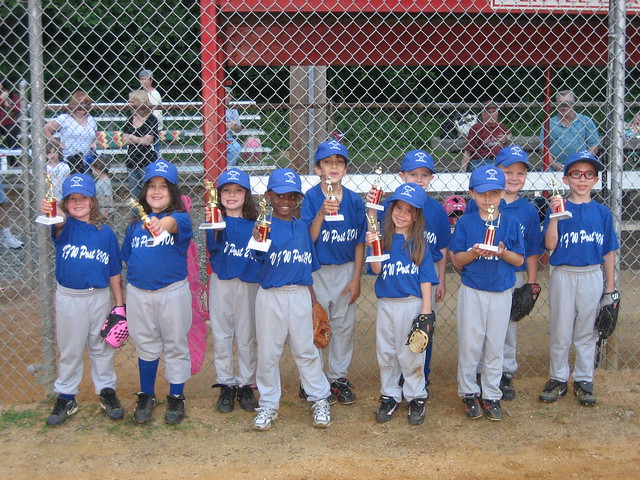The Self-Esteem Parenting Model is one common parenting strategy that has been nearly universal among middle-class families from at least the 1980s to the present. The model assumes that a high self-esteem is essential for a child’s success and that parents should promote and defend their child’s self-esteem as often as possible. Parents frequently tell their children that they are smart and great. They praise every half-hearted crayon scribble their child produces. Competition is avoided. Four-year-old soccer games are not scored, and whatever the game is, there are never any losers.
In Nurture Shock, a book I can’t recommend enough (see Resources), the problems with the Self-Esteem Parenting Model are brought to light. Studies find that children raised under the Model are often less successful and less happy. These children come to believe that their successes are due to innate ability or intelligence rather than their own effort. When they come to an activity at which they preform poorly, they shy away. Rather than working harder, they figure that they just aren't good at that. They also have a lot of trouble dealing with failure and rejection.
One study was conducted in America and in Hong Kong. Children were given a test that was designed to be too hard for them. After the test, their mothers were told that their child had done poorly. Then the students had a short break to interact with their mothers before taking another test. The American mothers avoided talking about the test. The Chinese mothers told their children they had not done well. They asked them what went wrong, and wanted to look over the test with them. They encouraged their child to try harder next time. It should be noted that despite the stereotype, the Chinese mothers were not more likely to take a harsh tone with their child. They smiled and hugged their children just as much as the American parents. AND, the Chinese children improved on the second test, but the American children did not.
So what should you do to encourage your child or student? When they get an A on a math test, don’t say, “You’re so smart!” Say, “You must have studied hard!” Praise their focus, discipline and effort, over their abilities. Let children lose. Not everyone wins all the time in life, and parents can better prepare children for that reality. Encourage kids to try things that might lead to failure, to critically assess how to do better, and to try-try again.
In Nurture Shock, a book I can’t recommend enough (see Resources), the problems with the Self-Esteem Parenting Model are brought to light. Studies find that children raised under the Model are often less successful and less happy. These children come to believe that their successes are due to innate ability or intelligence rather than their own effort. When they come to an activity at which they preform poorly, they shy away. Rather than working harder, they figure that they just aren't good at that. They also have a lot of trouble dealing with failure and rejection.
One study was conducted in America and in Hong Kong. Children were given a test that was designed to be too hard for them. After the test, their mothers were told that their child had done poorly. Then the students had a short break to interact with their mothers before taking another test. The American mothers avoided talking about the test. The Chinese mothers told their children they had not done well. They asked them what went wrong, and wanted to look over the test with them. They encouraged their child to try harder next time. It should be noted that despite the stereotype, the Chinese mothers were not more likely to take a harsh tone with their child. They smiled and hugged their children just as much as the American parents. AND, the Chinese children improved on the second test, but the American children did not.
So what should you do to encourage your child or student? When they get an A on a math test, don’t say, “You’re so smart!” Say, “You must have studied hard!” Praise their focus, discipline and effort, over their abilities. Let children lose. Not everyone wins all the time in life, and parents can better prepare children for that reality. Encourage kids to try things that might lead to failure, to critically assess how to do better, and to try-try again.


3 comments:
That will be the next book I read. thanks.
-kevin
Yes! I've recommended it to you before. Glad I was able to pique your interest.
Confidence is only beneficial when its backed up with competence. Otherwise, its delusion.
Post a Comment